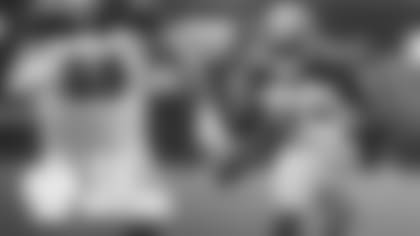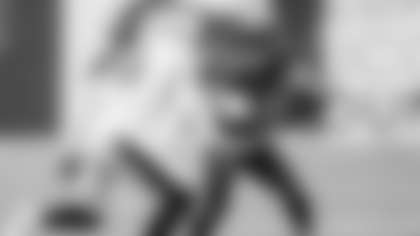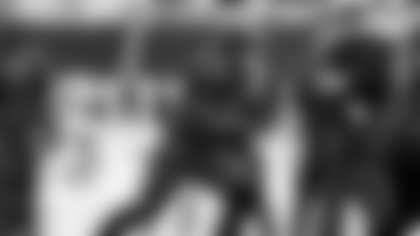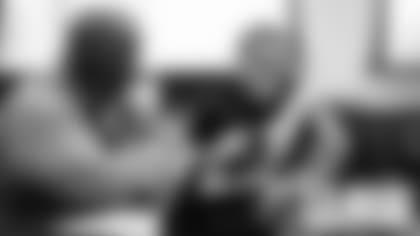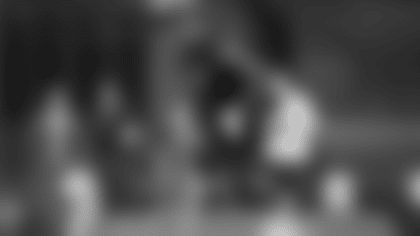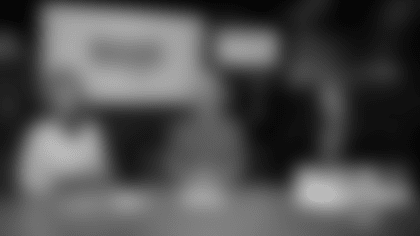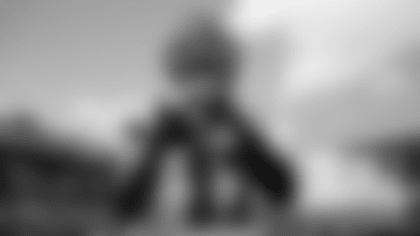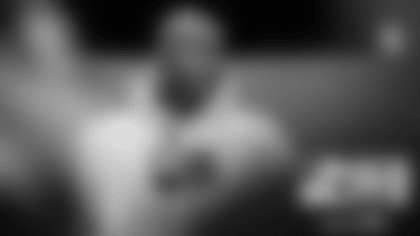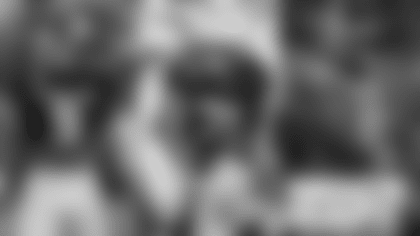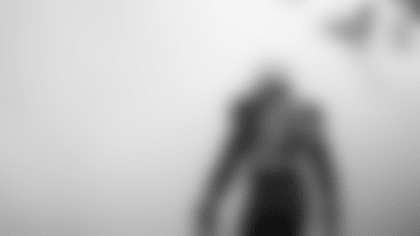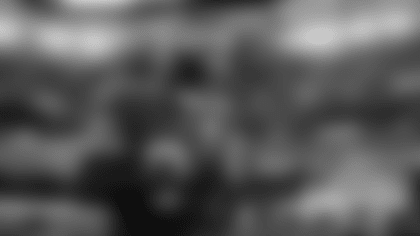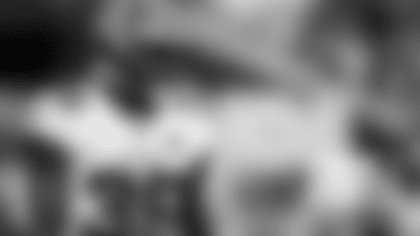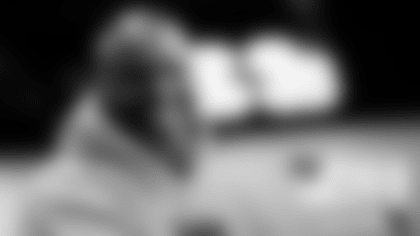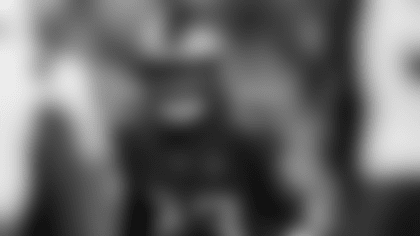On Sunday, the Tampa Bay Buccaneers endured their most lopsided defeat in four years, falling 48-10 in Chicago to a Bears team that had been averaging 21 points a game over the first three weeks of the season. Head Coach Dirk Koetter called the effort "horrific" in all aspects, and indeed the Buccaneers did little right on a forgettable afternoon at Soldier Field.
As Koetter has also noted since that loss, however, is that it is just one of 16 games the Buccaneers will play this season. With four of those 16 games in the books, Tampa Bay is 2-2 and a game behind New Orleans for first place in the NFC South. The Buccaneers already own a win over the Saints, a wild 48-40 shootout in the Superdome in Week One.
The notion, of course, is that there is a lot more of the season still to play, the Buccaneers still have every chance to make a playoff run and one game, no matter how horrific, does not have to be predictive of what is to come next. The same could have been said after the team went 2-0 to start the season, with that win in New Orleans followed by a downing of the defending-champion Philadelphia Eagles.
Inside the AdventHealth Training Center, the Buccaneers believe they have built a team that can and will contend for the playoffs. The first four games of the season have neither completely refuted nor supported that belief. Certainly, the team will have to produce better results on defense to make that playoff berth a reality, and it remains to be seen if that will occur. But Koetter is right that particularly good or bad games don't necessarily tell you what will follow, even as soon as the very next game.
After a 15-year playoff drought that spanned much of the '80s and '90s, the Buccaneers turned around their fortunes in 1997. In the 22 seasons since, they have now had 10 occasions on which they have lost a game by 30 or more points. On the nine occasions before Sunday's game in Chicago, the Buccaneers followed those lopsided losses with two double-digit wins, two double-digit losses, two close wins and three close losses, including one in overtime. Here's the rundown:
1. Dec. 14, 1997: Lost 31-0 at the New York Jets. Next game: 31-15 win over Chicago.
2. Dec. 19, 1999: Lost 45-0 at Oakland. Next game: Won 29-10 over Green Bay.
3. Nov. 22, 2009: Lost 38-7 to New Orleans. Next game: Lost 20-17 at Atlanta.
4. Oct. 9, 2011: Lost 48-3 at San Francisco. Next game: Won 26-20 over New Orleans.
5. Dec. 24, 2011: Lost 48-16 at Carolina. Next game: Lost 45-24 at Atlanta.
6. Dec. 16, 2012: Lost 41-0 at New Orleans. Next game: Lost 28-13 to St. Louis.
7. Sept. 18, 2014: Lost 56-14 at Atlanta. Next game: Won 27-24 at Pittsburgh.
8. Oct. 12, 2014: Lost 48-17 to Baltimore. Next game: Lost 19-13 to Minnesota in overtime.
9. Sept. 18, 2016: Lost 40-7 at Arizona. Next game: Lost 37-32 to the L.A. Rams.
The best outcome on that list was in 1999, and it occurred in Weeks 15 and 16. The Buccaneers, who had won seven straight before going to Oakland, knew by that point they were a very good team, and they would go on to the NFC Championship Game in St. Louis.
The worst outcome on that list was in 2011, and it occurred in Weeks 16 and 17. The Buccaneers, who had lost eight in a row before going to Carolina, knew by that point they were a very bad team, and they would go 4-12 in Raheem Morris's last season at the helm.
The most recent outcome on that list pushed the Buccaneers to 2-2 with three quarters of the season left. We don't know how good this team is yet. We will eventually find out if, as is often the case with the most stunning wins or losses, this one was an aberration or not.
In the meantime, nobody is thrilled with the Bucs' most recent outing, and that's reflected in your questions below. Let's get to them.
A reminder that you can send questions to me anytime you want on Twitter (@ScottSBucs) and they're easier to find if you include the hashtag #SSMailbagBucs. As you'll see from time to time, I also unilaterally appropriate for myself – as any good pirate captain would – questions I like that are meant for our Insider Live show or are simply responses to one of my previous tweets. I've also taken to stealing emails meant for our Salty Dogs podcast. As always, if you specifically want to get a question into the mailbag and would prefer to email your question, you can do so to tbbsocial@buccaneers.nfl.com.
Well, the first thing the Buccaneers can do to get more out of the running game is to get involved in a normal, back-and-forth, close-most-of-the way game for once!
Tampa Bay started the season with two high-scoring victories in which they were successfully bombing away from the get-go, building big leads over New Orleans and Philadelphia. The passing attack was doing too well to get away from it – and sometimes making drives so quick there was no time to get to any running plays – and by the time the Bucs were running it they were doing so in what are called "four-minute drills." That's when the team with the lead is running the ball to drain the clock, almost against a defense that knows what is coming and is stacking the box.
Against Pittsburgh, the Bucs fell behind by 20 points quickly and had to throw more to get back into the game, which they did, coming up just short in a 30-27 loss. And we all know what happened on Sunday in Chicago. For good stretches of the first quarter of the season, the rushing attack has been an afterthought due to the situation.
All of that said, the Buccaneers are most certainly not running the ball well. Tampa Bay ranks 30th in rushing yards per game and – more tellingly – last in yards per carry at 3.05. I'm not sure that this team is destined to rise into the top 10 or so in rushing, but it can certainly get better. The Bucs as currently configured probably will – and probably should – continue to be somewhat unbalanced in favor of their very talented passing attack, which remains number-one in the NFL.
How could it get better? Well, as Koetter is wont to say in these situations, it's not one simple thing that is causing the problem. It is a combination, I'm sure, of shortcomings in blocking, play-calling and running by the backs. The Buccaneers' coaching staff will be using the bye week for a thorough round of self-scouting, and they may make some changes to the way they scheme their rushing attack.
The Buccaneers last had a strong running game in 2015, when Koetter was the offensive coordinator. That team had three of the same five starters on the offensive line, if one counts Demar Dotson, who was replaced for a good portion by Gosder Cherilus due to injury. The other two were rookies – Donovan Smith and Ali Marpet – who could presumably be believed to be better players now than they were three years ago. One of the new players on this year's line is center Ryan Jensen, a big-ticket free agent who presumably represents an upgrade at that position. My point is, it seems like the Bucs have the personnel in place to succeed, and in fact in terms of pass-blocking they have for a good portion of the first quarter of the season.
Barring a run of more of these lopsided games, the Buccaneers will likely run the ball more often than they have so far, as their four tailbacks have combined for 17.8 carries per game. The Bucs have run the ball less than 10 times per game before halftime so far, the fourth lowest mark in the NFL. If the Buccaneers big men are going to start blocking more successfully, it will have to come from repetition. More carries will hopefully lead to more consistent success.
The same could be true of Ronald Jones, the rookie who was drafted with the thought that he could be a big-play complement to Peyton Barber. Neither back has hit many long ones yet; Barber has 3.0 yards per carry, Jones is at 2.9. Of course, all of Jones's work came in the most recent game, as he was inactive in favor of fellow rookie Shaun Wilson for the first three weeks. Jones may just need time and reps to adjust his game to the NFL. He's talented and explosive, but he's still learning.
"I can see Ronald making strides," said Koetter on Monday. "He had a couple really nice blitz pickups. There [were] a couple of runs where he got more out of them that might have been there and then there [were] at least two other runs that I thought he should've stayed behind the double team. He tried to break it off and got a three-yard gain that might have been a six-yard gain. Then obviously he dropped the screen pass – we had blockers out in front of him. You're trying to get a guy like him in space, so I'll say a mixed bag. I think Ronald is improving in the areas we've asked him to improve in."
If Jones remains active and steadily improves, the contrast of his style with Barber's could make them both more effective as a rotating tandem. In addition, assuming the passing attack continues to produce, the Buccaneers could play off of that a bit more in the running game, perhaps handing off a bit more often out of the spread sets the team has so commonly employed to this point. Anthony Becht broke down a very good example of this in his Film Session this week; check it out.
Even that strong running game of 2015 took some time to get on track, and that was with an experienced veteran, Doug Martin, as the centerpiece. That team was averaging about 90 rushing yards per game and 3.6 yards per carry after three weeks, then exploded with 11 great ground games in the next 12 outings. Again, I think it would be wishful thinking to expect the current Buccaneer team to end up as good at running the ball as the 2015 squad, but it can get better.
Hey, Salty Dogs-
I know you guys like to have fun on your podcast, and I've enjoyed it so far, but I'm not feeling too much like goofing around this week. That was a terrible game and I'm not really over it. Maybe you can guys can cheer me up. Anyway, one of the reasons I'm in a bad mood still is that there was injury added to insult at the end of that Chicago game. I hear that O.J. Howard is going to be out for a while and I really thought he was becoming an important part of our passing game. Is that going to slow down with him out of there? C'mon, make me feel better.
Thanks,
Ronald Jones…seriously, that's my name though I usually go by Ron (sent in via email to saltydogs@buccaneers.nfl.com)
As I mentioned up top, I sometimes "borrow" from the Salty Dog mailbag for this one, and we didn't get to Ron's question in this week's edition. (In a related note, please go listen to the podcast! We post it every week late Tuesday or early Wednesday. Thanks!)
Yes, Ron, it's a bummer when injuries happen, especially to a player who is clearly on the rise. (Actually, nix that "especially" qualifier; injuries are as much of a bummer when they happen to anyone.) There's a little added salt in this particular would because Howard got hurt just barely failing to make a stunningly good catch in the Chicago game. He is a special athlete, and that's starting to show up more and more in the Bucs' offense.
Koetter said that Howard would miss "at least a couple weeks" with the knee injury he sustained against the Bears. I'd say it's fair to believe the reports from outside media that have him sidelined for two to four weeks. If it's at the far end of that range, Howard would miss three games; the bye week is well-timed for him, at least.
That's unfortunate, but I think the Bucs' passing attack will be able to remain very effective in his absence. For one thing, the team has another productive pass-catching tight end in Cam Brate, who has scored in each of the last two games and has 16 touchdowns since 2016, more than every tight end in the league except for Jimmy Graham and Kyle Rudolph, both of whom have 17. Brate remains a very potent weapon in the red zone, even if Howard may be the more explosive of the two down the seams. The Buccaneers can also utilize Antony Auclair more as a blocker so that they can continue to have effective two-TE packages.
Also, it's worth noting that Jameis Winston is returning to the starting lineup, and he seems to have a particularly good connection with Brate. The Buccaneers are definitely better off when they have both Howard and Brate available, but the latter is enough of a threat on his own to command attention from the defense and draw defenders away from Mike Evans, DeSean Jackson and Chris Godwin. I think the Buccaneers remain deep enough in pass-catching weapons to continue to put up big numbers, and I think Winston is going to make great use of them.
Well, the first part of this easy: Win one game.
The Buccaneers have to stew on the terrible game in Chicago a little longer than usual because it happened right before the bye week. On the other hand, that bye gives the Bucs a bit longer to prepare for a game that could prove to be one of the most important ones on the schedule when it's all said and done. In Week Six, the Bucs head up to Atlanta to take on the Falcons.
A 2-2 start after four games is certainly no disaster, particularly given how tough the opening-month schedule was, but it doesn't currently feel too uplifting because the wins came first so the losses are more fresh, and the last one was demoralizing. That bad feeling would wash away in a hurry with a win over the Falcons.
Such an outcome would not only make the Bucs 3-2 and at the very worst a game out of first place depending upon what New Orleans does against Washington in Week Five before a Week Six by and what Carolina does against the New York Giants and Washington in the next two weeks. And, in that scenario, the Buccaneers would already be 2-0 in division play, with two road wins already under their collective belt. That would be a very good place to be sitting after five week. A win in Atlanta would provide some solid evidence that the true Buccaneers are closer to the team that played the first two weeks and fought hard on Monday night in Week Three than the one that stumbled badly in Chicago.
As for the second part, that's the Million Dollar Question, right (albeit asked a lot less harshly than most of what I've seen on Twitter)? How can the Buccaneers do in 2018 what they did in 2016 under Koetter and Mike Smith, when a team that was giving up yards and points in copious amounts for the first half of the year suddenly found its footing at the midway point and was one of the NFL's better defensive teams in the second half, particularly in terms of causing turnovers?
The answer is not likely to come from significant personnel changes, which are hard for any team to make in the middle of a season. The Buccaneers could get a boost of some kind from the eventual returns of defensive tackle Beau Allen and Mitch Unrein and a little more health in the secondary, but there aren't likely to be any difference-makers brought in from the outside during the season.
So the difference necessarily has to come from better execution, which includes a significant reduction in mental errors and missed assignments. That starts with the self-scouting this week by the coaches, as I mentioned above, and then it extends to the meeting room and the practice field. There really is no other answer.
From a purely physical standpoint, the Buccaneers' defense can improve if its defensive linemen win their one-on-one matchups more frequently. The pass rush was definitely showing signs of life in Weeks Two and Three before a less effective afternoon in Chicago, and both Jason Pierre-Paul and Gerald McCoy are among the league leaders in quarterback hits. I think the front line has the potential to create more havoc in the games to come, and that would certainly help the secondary get straightened out.



